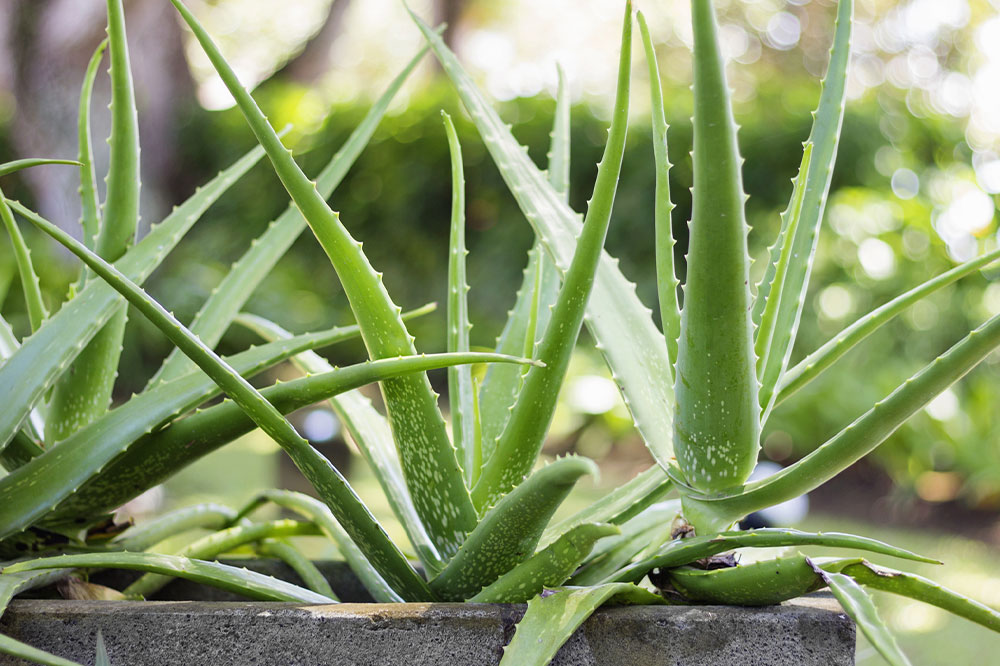10 plants that are poisonous to dogs

Plants are often recommended for their nutritional value and aesthetic appeal. However, for pet parents, purchasing plants suitable for their furry friends is an added responsibility. While the presence of some fruits and vegetables is safe – and even recommended – for dogs, certain other plants can lead to severe digestive issues and sometimes even threaten their lives. So, here’s a list of plant sources that can prove toxic for your pet friend.
Aloe vera
Aloe vera is used topically and internally, owing to its healing properties. However, aloe vera can harm dogs, causing stomach issues like diarrhea, vomiting, and urinary tract infections. Thus, it is best to avoid growing aloe vera plants at home; store-bought aloe vera should be kept out of reach of dogs.
Daffodil
Although dainty daffodils are popular as houseplants, daffodil bulbs, and flowers, and even the water in the vase in which daffodils had been preserved, they can be poisonous for dogs. Eating daffodils may cause your pet friend digestive problems like diarrhea, vomiting, extreme sleepiness, dizziness, and sometimes even tremors.
Eucalyptus
This aromatic tea tree oil, similar to other tea tree oils like peppermint, wintergreen, and cinnamon, can be highly toxic for dogs in terms of intake and application. Drooling, diarrhea, vomiting, and bad moods are negative consequences observed in dogs after exposure to eucalyptus.
Tulips
All parts of the tulip plant, especially the bulb, are poisonous to dogs, with particularly severe effects on smaller dogs and puppies. Symptoms of tulip poisoning include diarrhea, vomiting, abdominal pain, drooling, and tremors.
Sago palm
This leafy, aesthetically pleasing plant is easy to grow and popular among home gardeners. However, pet parents must steer clear of this plant, as it can cause issues like vomiting, abdominal pain, tremors, seizures, and diarrhea among dogs.
Tomatoes
Ripe tomatoes are safe for dogs and are essential ingredients in several pet foods. However, unripe tomatoes can cause toxicity in dogs, as can the tomato plant in itself. An upset stomach and other problems like weakness, pupil dilation, and arrhythmia are some signs of tomato poisoning among dogs.
Onion
All parts of the onion plant can cause poisoning in dogs, regardless of whether they eat it raw or cooked. According to experts, 100 grams of onion per 20 kg of a dog’s weight is sufficient to cause severe health complications in dogs. Thus, onions should be kept away from a dog’s reach at all times.
Garlic
Like onions, garlic in all forms is toxic to dogs and can cause negative repercussions, irritating their gastrointestinal tract and leading to ill effects like vomiting and diarrhea. It can also cause harm to their red blood cells and should be kept out of reach of dogs.
Alocasia
Alocasia, or elephant’s ear, is a dark-green indoor plant with broad leaves. However, its calcium oxalate crystals can cause severe irritation in dogs and should not be grown in homes with pet dogs. Therefore, your dog should be taken to the veterinarian immediately if it accidentally eats this plant.
Citrus plants
Although some citrus fruits like grapefruit are safe (only in minimum quantities) and even healthy for dogs, certain parts of many citrus plants can be poisonous. For example, the peel, leaves, and stems of plants like oranges and lemons can be toxic for dogs.
Ensuring their canine friend’s safety is a pet parent’s utmost priority and concern. The key to avoiding plant toxicity is to thoroughly research plants (and their parts) that can be poisonous to dogs and pet-proofing one’s home to avoid such accidents.

